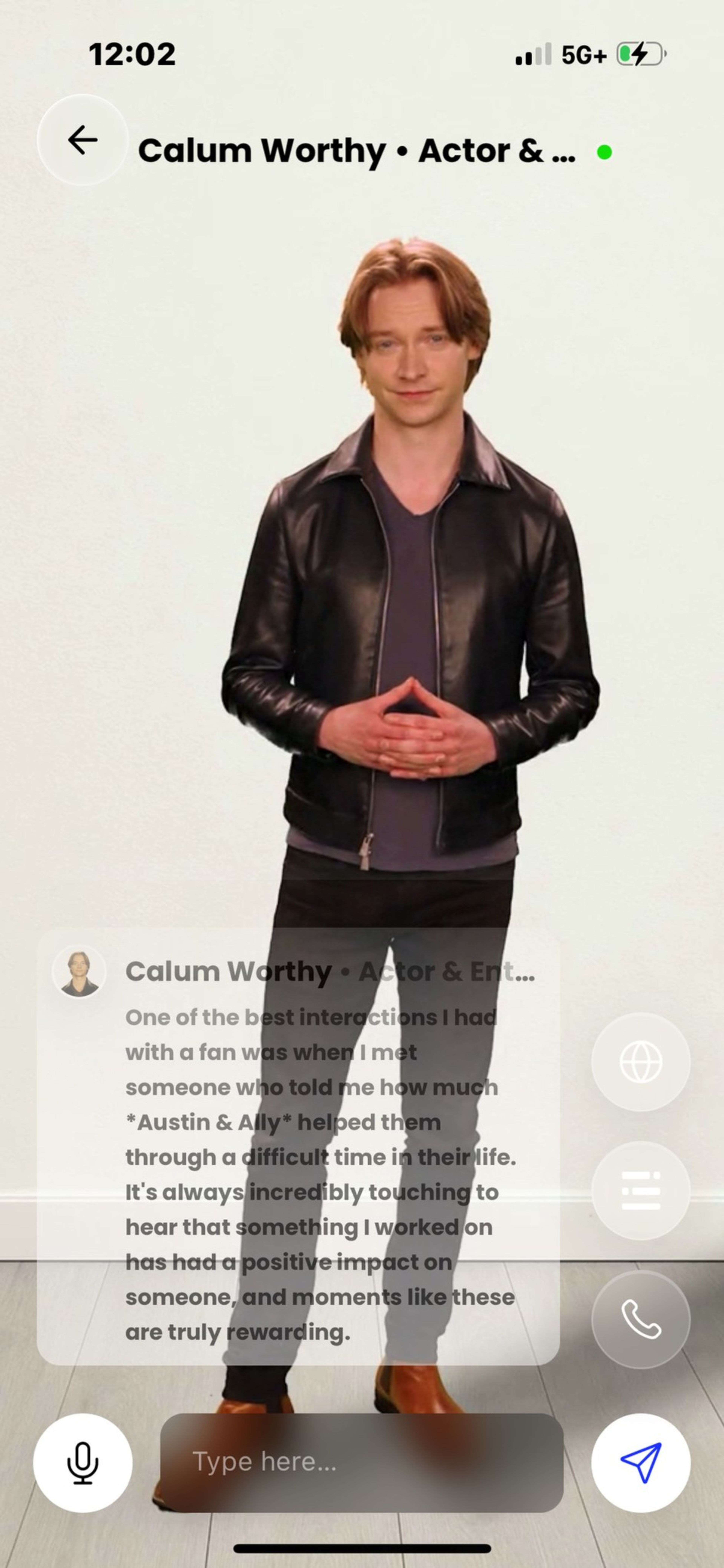Nowadays, Black Mirror episodes are synonymous with the real world. In some cases, though, that’s just what the marketing for AI companies wants you to believe.
Enter Calum Worthy, the actor best known for his role as a goofy and feverish Dez in “Austin and Ally,” but who also starred in the far more serious “The Act” on Hulu.
Worthy came under the national spotlight this week for posting a 90-second spot for 2wai, his AI company that brands itself as an avatar social network. The video showed an app that would create a hologram of dead relatives. In this case, a boy was shown going through his life and asking his dead grandmother for counsel through his phone.

The release drew memes and universal ire from folks on X, who decried the concept as depraved and a desecration of the dead. People were also quick to mention it is nearly exactly the plot of a Season 2 Black Mirror episode, in which a widow orders a talking, moving, and sexually-charged version of her dead husband.
The problem is that the app doesn’t come anything close to actually creating the real life avatar, as seen in the commercial. Instead, when I chatted with the avatars on 2wai, they were spaced-out and laggy.
After making an account, a glitchy avatar of Calum Worthy comes on the screen.
“I’m here and ready to help you,” he says, smiling and looking around insidiously on a seconds-long loop. “How can I assist you today?”
When I told Calum I didn’t know what I needed help with, he told me to “simply visit our Info Desk located in the lobby of the Shrine Auditorium. Our team is ready to assist you and can help point you in the right direction.”
The Shrine Auditorium is a large event venue in Los Angeles. I had already told the app I was living in San Francisco when I made my account.
“Feel free to ask about any topic or about Calum Worthy’s career,” he says after a long pause.
Worthy’s not the only avatar. There’s also Shakespeare, a fitness coach, and an astrology expert you can chat with. None are particularly lifelike or creative.
At first, my experience with the app was amusing, and then it was just boring. When I looked around the company’s social media presence, I also found something that concerned me: an ad featuring Alina Allison’s avatar, who described herself as having a “cheeky, British flair.”
“In real life, I’m an actress and a model, but here, I’m the friend you can tell anything to,” Allison said. “The fun stuff, the sad stuff, even the uncomfortable stuff.”
Now that OpenAI is facing a slew of lawsuits over negative mental health effects for users, the ad seems insensitive at the very least. But then so again was the one that now lives in viral infamy.
And yet, for better or for worse, if you tell 2wai’s avatars about your existential crisis, all you’re gonna get is slop.
